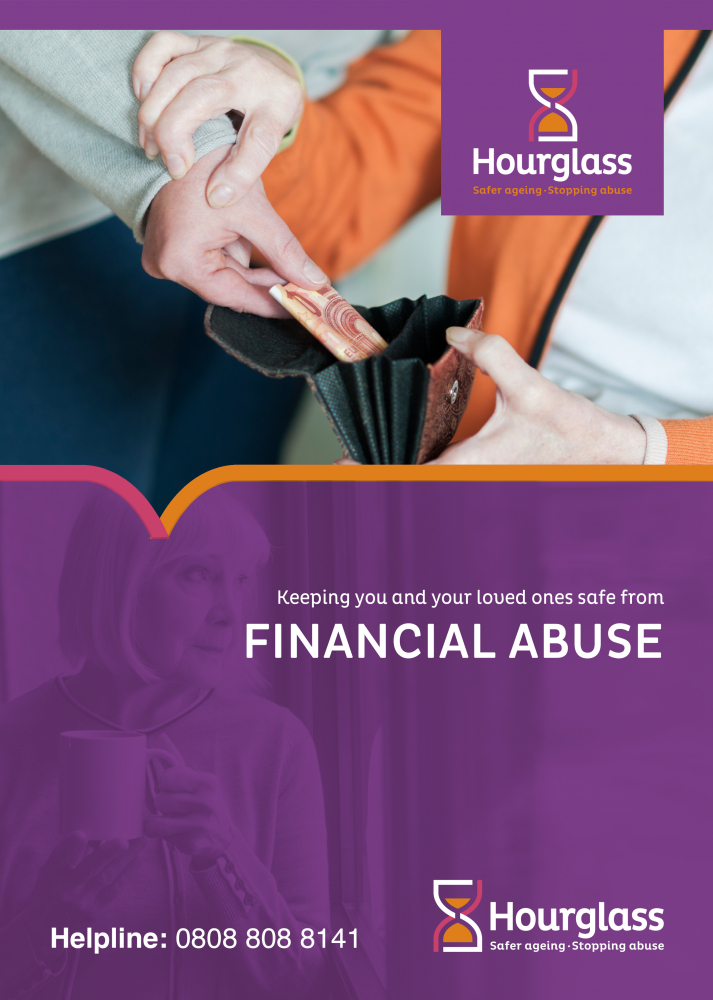Financial abuse is where someone in a position of trust interferes in an older person’s ability to acquire, use or maintain their finances. It is always a crime but not always prosecuted.
For example:
-
An abuser might exploit an older person by making demands for large transfers.
-
An abuser might control an older person's access to financial resources by refusing to let them access a bank account.
-
An abuser might sabotage an older person's ability to maintain financial security by building up debt in their name.
What are the signs of financial abuse/harm?
-
Signatures on cheques and documents that do not resemble the older person’s signature, or signed when the older person cannot write.
-
Sudden changes in bank accounts, including unexplained withdrawals of large sums of money by a person accompanying the older person.
-
The inclusion of additional names on an older person’s bank account.
-
Abrupt changes to or the sudden establishment of wills.
-
The sudden appearance of previously absent relatives claiming their rights to an older person’s affairs or possessions.
-
Someone moving into an older person’s house and living rent free, without agreement or under duress.
-
The unexplained sudden transfer of assets to a family member or someone outside the family.
-
Misuse of power of attorney, deputyship, appointeeship or other legal authority.
-
Numerous unpaid bills, or overdue rent, when someone else is supposed to be paying the bills.
-
Lack of amenities, such as TV, personal grooming items, appropriate clothing, that the older person should be able to afford.
-
The unexplained disappearance of funds or valuable possessions such as art, silverware, or jewellery.
-
Deliberate isolation of an older person from friends and family, resulting in the caregiver alone having total control.
DOWNLOAD BROCHURE
 Shop Now
Shop Now
